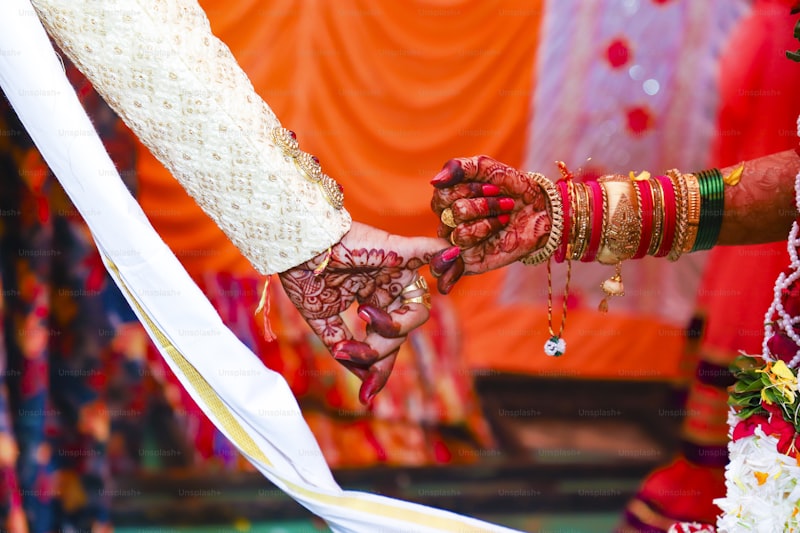Cultural Symbolism in Wedding Vows: Unveiling the Meaning Behind Promises
Wedding vows are more than just words exchanged between partners; they are a rich tapestry of cultural symbolism that reflects values, beliefs, and traditions. Understanding the cultural symbolism in wedding vows not only enhances the wedding experience but also strengthens the bond between couples as they embark on their journey together. In this article, we will explore the significance of wedding vows, the various cultural elements involved, and how this understanding can impact your own vows.
The Importance of Wedding Vows
Wedding vows serve as the foundation of marriage, outlining the commitments and promises each partner makes to the other. These vows can reflect personal beliefs, religious practices, and cultural heritage, making them unique and significant. They represent a couple's devotion to one another, the intentions behind their relationship, and the life they aim to build together.
Understanding Cultural Symbolism
Cultural symbolism in wedding vows often stems from age-old traditions and beliefs. Different cultures have various interpretations of love and commitment, which is evident in their wedding ceremonies. Here are some key elements of cultural symbolism in wedding vows:
1. Rituals and Traditions
Many cultures incorporate specific rituals into their wedding ceremonies that are reflected in the vows. For instance, in a traditional Hindu wedding, the couple takes seven steps together, with each step symbolizing a different promise. These steps are called "Saptapadi" and serve as a critical aspect of their vows, signifying their commitment to mutual respect, love, and harmony.
2. Religious Influences
Religion plays a significant role in shaping wedding vows across cultures. In Christian weddings, vows are often imbued with biblical references and divine blessings. The phrase "until death do us part" illustrates a spiritual commitment that transcends earthly bonds. In contrast, Islamic wedding vows may involve the "Nikah," a contract stipulating the roles, rights, and responsibilities of each partner, emphasizing mutual respect and partnership.
3. Language and Expression
The language used in wedding vows can also carry immense cultural symbolism. For instance, vows in Spanish may include phrases that express deep emotional connections, such as "Te amaré por siempre" (I will love you forever). This linguistic expression can enhance the emotional depth of the vows, making them more profound and personal.
How Cultural Symbolism Influences Personal Vows
As couples blend their unique backgrounds and beliefs, the cultural symbolism in wedding vows becomes more pronounced. Here are some ways that understanding cultural symbolism can influence your own vows:
| Aspect | Influence on Vows |
| Traditions | Incorporate family customs or rituals into the vows to honor heritage. |
| Religious Elements | Include religious texts or blessings to emphasize faith and commitment. |
| Language | Use a mix of languages to represent both partners' backgrounds. |
1. Blending Traditions
As couples from diverse cultural backgrounds come together, blending different traditions in wedding vows has become increasingly common. For example, a couple may incorporate elements from both Chinese and Western traditions by using symbols like the "red envelope" to signify prosperity while also reciting vows that include promises of loyalty and love.
2. Emphasizing Religious Significance
If both partners share similar faiths, they may choose to adopt the religious significances in their vows, incorporating prayers and divine commitments that reflect their beliefs and strengthen their spiritual bond. For individuals from differing faiths, crafting vows that respect both perspectives can foster understanding and unity.
3. Personalized Language
Personalizing vows in a way that reflects your relationship is essential. Many couples opt to write their own vows, allowing for creative expression that can include favorite quotes, shared experiences, or even inside jokes. This approach allows each partner to express their love uniquely while still nodding to their cultural backgrounds.
Common Questions About Cultural Symbolism in Wedding Vows
As couples prepare for their wedding, they may have several questions related to cultural symbolism in wedding vows. Here are some common inquiries:
1. How do I choose the right cultural symbols for my vows?
Choosing cultural symbols for your vows should reflect your relationship and values. Discuss with your partner what elements are significant in your respective cultures. Consider which traditions resonate the most with you both and how they can be incorporated meaningfully into your vows.
2. Can I mix different cultural elements in my vows?
Absolutely! Many couples blend cultural elements to create personalized and unique vows. Reflect on what aspects of each culture are essential to you and your partner, and feel free to create a fusion that showcases your love story.
3. What if I don’t identify strongly with any cultural tradition?
If you don’t feel a strong connection to any specific tradition, focus on the values and commitments that matter most to you and your partner. Your vows should be a reflection of your relationship, incorporating themes of love, respect, and partnership, regardless of cultural affiliation.

Conclusion: The Symbolism of Love in Vows
Understanding the cultural symbolism in wedding vows can transform the wedding experience and strengthen the bonds between partners. These vows not only capture the essence of love and commitment but also serve as a testament to the journey a couple embarks on together. Whether you choose to incorporate traditional elements, religious significance, or personal touches, the most important aspect is that your vows reflect your relationship's uniqueness and authenticity. As you craft your own vows, take time to consider the symbolism that resonates with you and your partner, creating a lasting expression of your love that you will carry into your marriage.
In summary, wedding vows are a celebration of cultural heritage and personal commitment. Consider the traditions and symbols that are meaningful to you as you embark on this journey, ensuring that your vows are a true reflection of your love story. Remember, there are no 'one-size-fits-all' vows—what matters most is the sentiment behind them.